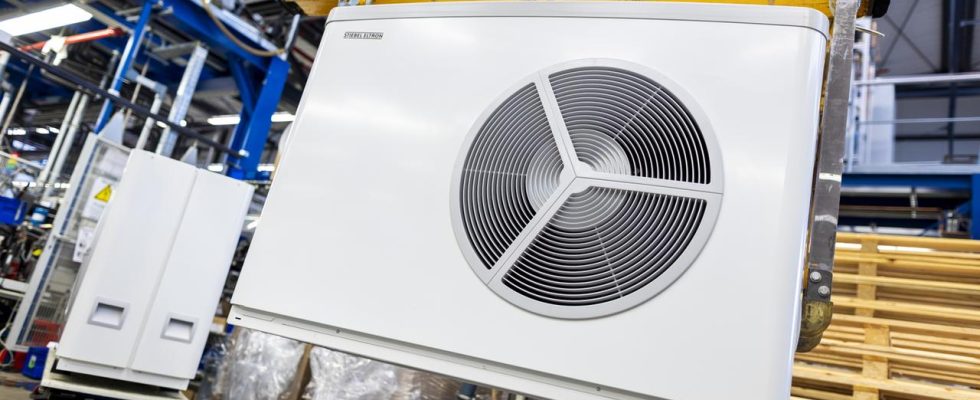report
Until recently, there was a veritable run on heat pumps and the trades could not keep up with the installations. However, the dispute over the planned heating law has completely changed the situation.
Actually, Falk Donner was hoping for long-term good business from the heat transition policy. The heating engineer had already specialized in the installation of heat pumps more than 20 years ago, had sufficient equipment in the warehouse and 50 employees. He was well prepared for the big onslaught.
What actually happened was extreme ups and downs. “Last year we actually installed 300 devices,” he says. “But for half a year we’ve been selling almost nothing.” Orders fell by 80 percent. According to the Federal Association of Heat Pumps, many in the industry are like Donner and his company “AF Wärme”. Especially since the federal government reduced the pressure on the schedule for the heating conversion.
The ecological specifications for house heating should only apply if a connection to the district heating network is not possible. And that only when the administration of the place of residence has drawn up a so-called heat plan. She can take her time with this until 2028 at the latest.
Waiting for politics
“We’re in a state of shock right now,” reports Donner. “Everyone tells us that although they are interested in a heat pump, they will have to wait and see what the politicians do.” At the moment, his sales representatives could hardly convince anyone to buy a heat pump. Two of the three sellers have since left the company because they were no longer earning enough commission.
Today the heat pump specialist is in St. Johann on the Swabian Alb with two colleagues. Here they work off one of the old orders that they still have. They install a heat pump in Jürgen Goller’s family home – as a supplement to the pellet heating system, a hybrid system.
“I ordered a year ago and have not regretted my early decision,” says Goller. Even then he received 45 percent state funding and doesn’t think he could expect much more now. “I’m happy to waive the 70 percent that Mr. Habeck may now be promising, because I believe that the hurdle will ultimately be so high that only very few will receive this funding.”
“A lot is still speculation, some things are known too early”
Much is still speculation about the heat transition, but some things are known too early, Donner believes. He considers it unprofessional that the federal government is already declaring that the new funding guidelines should apply from 2024.
“It’s clear that today most people are less relaxed than Mr. Goller and now almost nobody is buying a heat pump,” he believes. He also hopes that the government will change its strategy and release the funding immediately after a law has been agreed. Otherwise there is a risk of a stalemate by the end of the year. “That would be bad for my business but also for the heat transition.”
Donner and his customer Goller are convinced that government intervention is needed if you want to convert to more environmentally friendly heating. But politicians didn’t organize the project particularly well. For far too long people have been in the dark about where the path is headed, which has fueled fears and had consequences that are not at all in the spirit of the matter. “We’ve concentrated on regenerative heating systems,” says Donner. “But many heating engineers have no choice but to please the customer and quickly install an oil or gas heating system.”
Hoping for a new boom
His company “AF Wärme” is going through a “deep valley” in terms of business, says Donner. What remains is the hope of an order boom in the coming year. That is almost certainly to be expected. The only question is how big it will be.
Because the specifications for house heating are to be made dependent on the status of heat planning by the municipalities, the deadline for eco-conversion in some places is years after January 1, 2024.

